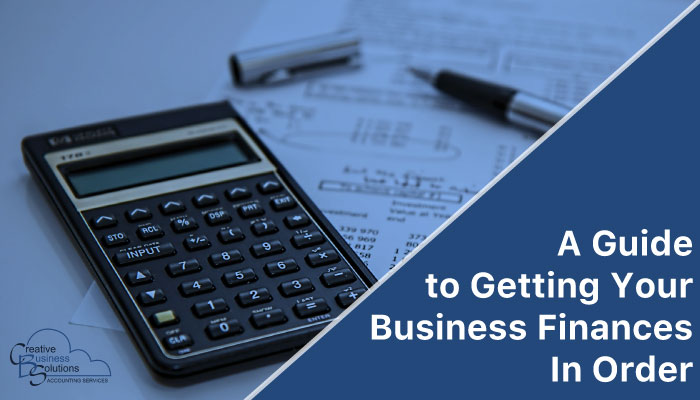|
Some small business owners have MBAs, are seasoned in the private sector, and have strong knowledge in all things related to handling the finances for their business. This guide is for business owners who have little-to-no finance experience and want to ensure they are on track to business success.
1. Separate your business and personal finances The first thing to do to begin getting your business finances in order is to separate your business and personal funds. Doing so will help you save time and money, and it will protect your personal finances from any potential legal trouble. Creating a business bank account can allow you to separate your personal finances from your business ones. There are a variety of factors to consider when choosing a bank account for your company. Some of these include account fees, account features, and mobile banking capabilities. Be sure to consider all of these when choosing a bank account. A business credit card is another great way to separate your personal and business finances. It lets you make purchases and establish your business credit without having to worry about transferring money from one account to another. There are a variety of business credit cards choices. 2. Learn the basics of accounting The next step in managing your small business financials is to learn the basics of accounting. Although it may seem like a challenging task, taking the time to learn the terms and understand your reports will help you save time and money. As you begin to learn about small business financial management concepts, you'll likely encounter many terms that are confusing to understand. Our Accounting Terms Explained That Every Business Owners Should Know blog will help you understand the terminology and give you an idea of what to expect when it comes to accounting terms. Aside from keeping track of your business expenses and tax returns, you'll also need to keep track of all your revenue and expenses. If you're struggling to keep track of all of your accounting documents, then you've come to the right place. There are plenty of accounting software options that will help you streamline your tasks and save you time. We offer accounting software training to help you understand how to use some of the most popular accounting software. 3 Hire an accounting professional Although accounting software can help you manage your business financials, some areas are beyond the capabilities of most small business owners. This is why it is always a good idea to hire a professional to review and improve your books. No matter what role you decide to take on when it comes to managing the books, it is still essential that you stay involved with your small business' financial management. Doing so will help you stay informed and aware. 4. Focus on your credit The next step in managing your small business financials is understanding and improving your credit scores. Various factors will affect your ability to get a loan or a property lease for your business. Your personal credit score is critical to the success of your business. It can also affect your ability to get approved for a loan. Establishing a good credit score is very important for business owners. Doing so can help them manage their expenses more effectively. Aside from your personal credit score, you also want to establish a business credit score. Having a business credit score is a vital component of your business identity. You've already taken the first step toward financial stability. It's time to take the next step and consider financing for your business. 5. Consider your financing options There are many types of business loans and lender requirements that you'll need to consider before you apply for one. Understanding these requirements will help you make an informed decision when it comes to financing your business. If you have a solid credit rating and have been operating for a long time, a traditional bank may be able to provide you with great terms. However, if your credit is not stellar, there are other options available. Alternative lenders are typically more flexible when it comes to making loan decisions. They can consider a variety of factors when it comes to making decisions. There is a lot involved with getting your business's finances in order. Understanding where your finances are is a great place to start. Schedule an accounting record cleanup and business review today. Contact us for more information on our services.
0 Comments
|
AuthorCathy Badry, BComm, CPB Archives
February 2023
Categories
All
|
Copyright © 2021 CSB Creative Business Solutions. All rights reserved. Site powered by Weebly. Managed by Rebel.com


 RSS Feed
RSS Feed
